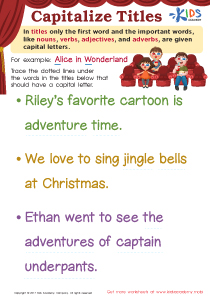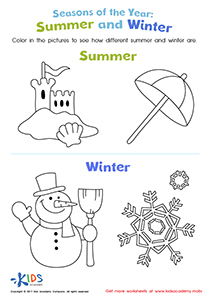Discuss Stories Read Aloud Quizzes for 5-Year-Olds
1 results
1 filtered results
Clear all filters1 filtered results
-
From - To
Discover the joy of interactive learning with our "Discuss Stories Read Aloud for 5-Year-Olds" assessment quizzes! Designed specifically for young minds, these engaging quizzes not only test knowledge but also provide immediate feedback to enhance understanding. As your child listens to stories read aloud, they can then dive into our quizzes that cover key plot points, character analysis, and moral lessons. Perfect for reinforcing listening skills and comprehension, our quizzes make learning an interactive adventure. Watch as your 5-year-old develops a deeper appreciation and understanding of the stories, all while having fun!
Interactive quizzes, especially when integrated with narratives, have proven to be a powerful educational tool for children, enhancing comprehension, retention, and critical thinking. The "Discuss Stories Read Aloud for 5-Year-Olds" program is a prime example of how tailored educational activities can significantly benefit young learners in their foundational years.
This program centers around the idea of making learning interactive, engaging, and, most importantly, fun for children who are at a critical stage of development. At the age of 5, children are not only learning to read but are also developing their listening skills, expanding their vocabulary, and beginning to understand complex narrative structures. "Discuss Stories Read Aloud for 5-Year-Olds" meets these young students at their level, offering them stories that capture their imagination and quizzes that challenge their understanding in a supportive way.
Key to the Discuss Stories Read Aloud program is its interactive quizzes. These quizzes are carefully designed to assess the child's comprehension of the story read aloud to them. They employ a variety of question types, from multiple choice to true or false, and even include pictorial options for those who are still developing their reading skills. This variety ensures that the quizzes are accessible to all learners, catering to the diverse range of abilities within the age group.
The benefits of these quizzes are manifold. First, they encourage active listening. Knowing that there will be questions about the story afterwards, children are incentivized to pay close attention to the details of the narrative. This practice of active listening is an essential skill, not just for academic success but for life-long learning and interpersonal communication.
Second, the quizzes promote comprehension. It's one thing to listen to a story; it's another to understand its themes, recognize the motivations of its characters, and recall the sequence of events. The quizzes challenge children to engage with the story on a deeper level, improving their comprehension skills which are foundational to all future reading.
Third, these quizzes offer immediate feedback. Children learn not only from their successes but also from their mistakes. The interactive nature of the quizzes means that children can see right away which answers they got correct and where they misunderstood. This immediate feedback loop helps to reinforce learning and clarify misunderstandings in real-time, making the educational experience more efficient and effective.
Moreover, the Discuss Stories Read Aloud for 5-Year-Olds program also fosters a love of reading. By making the quizzes interactive and fun, children associate positive feelings with the act of reading and discussing stories. This positive association is crucial in developing a lifelong habit of reading, which is invaluable for academic success and personal growth.
In conclusion, the interactive quizzes as part of the "Discuss Stories Read Aloud for 5-Year-Olds" program are a thoughtfully designed educational tool that supports young learners in developing essential skills. They not only enhance listening and comprehension but also encourage critical thinking and a love for reading. By engaging children in this interactive and supportive manner, we lay the groundwork for their future academic success and foster a lifelong love of learning.












